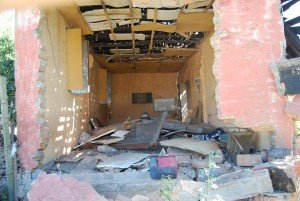- Earthquakes in Ecuador and Japan.
- Massive flooding in Houston.
- Fire spreading through row homes in Lancaster.
Emergencies. Tragic events. People in need of help.

And good-hearted people the world over respond. When a 7.8-magnitude earthquake hit Nepal a year ago, compassionate individuals donated $15 million in little more than a week through the donate button that appeared in their Facebook newsfeeds.
Tragic events pull at our heartstrings . . .
and cause us to pull out our wallets.
The Nepal quake was swift and terrifying. It killed more than 8,000 people, injured 21,000, and left hundreds of thousands homeless.

Alzheimer’s disease, on the other hand, is not swift but it is terrifying. It kills more than 80,000 people a year in the U.S. alone, and 5 million Americans are living with it today.
Multiple sclerosis is a slowly progressing disease as well, but it’s one that affects an estimated 2.3 million people worldwide and for which there is no cure.
Chronic undernourishment gnaws at 795 million people worldwide, and 6.9 million U.S. households experienced very low food security, resulting in hunger.
Chronic illnesses and issues don’t loosen our pursestrings like an emergency does. They are there day in and day out. As are the requests for donations. They appear never-ending. If I don’t give today, no worries. Money will still be needed tomorrow or the year after that. And we aren’t really sure it will help. At least not right away. And so we ignore the constant drone of the problem in favor of the scream of the emergency.
Ask church treasurers and they will tell you the same phenomenon occurs in church giving. The offerings are needed every week to pay for mortgages and utilities, supplies and salaries, curriculum and toilet paper. It’s not very exciting, and it’s not going away. But have an emergency like a heating system dying or a special event like a mission trip, and people dig deep to donate. Unfortunately, many people take the money out of their regular (boring) offering to give it to the interesting emergency/event.
So does that mean when we get the requests to donate toward earthquake or flood relief (or a new heater for the church) we ignore it?
Not necessarily. But maybe we commit to also donate toward progress on a chronic issue at the same time. And let’s not rob Peter to give to Paul.
Chronic issues aren’t as urgent as the emergencies.
Nor are the giving results as instantly satisfying.
But they still affect millions of lives.
Let’s not make it an either/or.